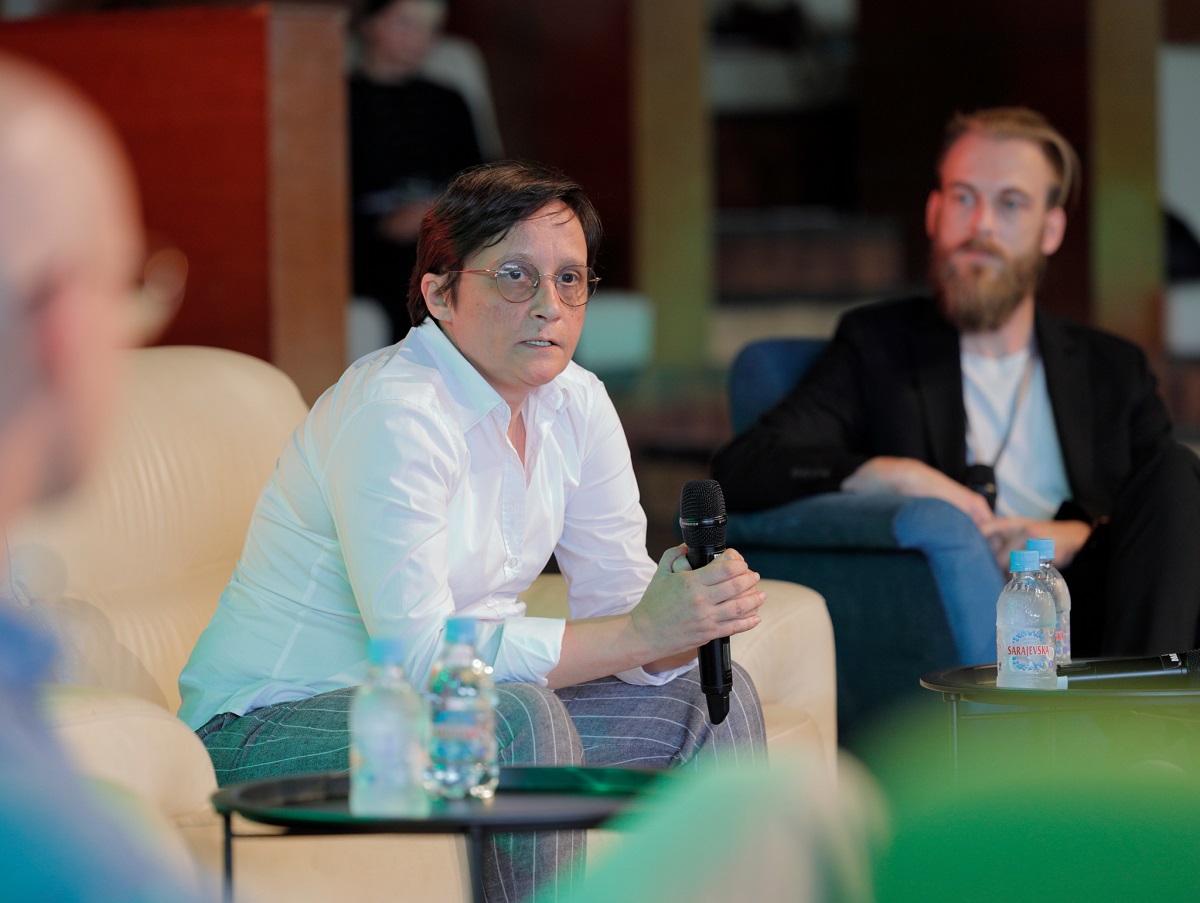Pulling The Plug on Monetizing Disinformation: When Fakes Make Money
On the afternoon of the first day of the 12th Point Conference, a hybrid session took place, featuring two presentations and a panel discussion on the increasing issue of monetizing disinformation on news websites through ad auction systems and social media companies.

The session began with a presentation by ProPublica journalist Craig Silverman, who shared the findings of his research on various deceptive advertising styles appearing online. He highlighted deceptive ads on right-wing websites that frequently get fact-checked, deepfake Medicare scams, and Google doing an ad business with websites hosting articles rated as false by fact-checking organizations.
Following this, Mirjana Jevtović, an editor at the Digital Forensic Unit of Radio Free Europe/Radio Liberty in Belgrade, presented a case study by RFE on a multi-million-dollar ad scam from North Macedonia, which resulted in some Americans losing their life savings. The story involved over six dozen websites started by 66 individuals in Veles, North Macedonia, targeting Trump supporters and selling them fraudulent products, such as cards promising to multiply their fortune.

At the beginning of the panel session, Victoire Rio addressed the growing issue of ad revenue sharing on social media platforms. She noted that social media companies encourage users to profit from their social activity, often lacking transparency and oversight in their ad business operations.
Responding to a question from Maria Ćosić, one of the panel moderators, about how deceptive advertising could be prevented, Silverman pointed out the failure of ad networks to enforce their own policies on deceptive advertising.
“There is a platform responsibility if you are Google or an ad network, and you have platform policies that say ‘We don’t allow for deceptive advertising, we don’t allow you to financially abuse the community,’ etc. Those are policies that pretty much any ad network is going to have, so the ads should not be there in the first place,” Craig said.
Victoire also highlighted the failure of social media platforms to conduct due diligence when reviewing applications for ad revenue sharing programs. “In some cases, you are dealing with sanctioned entities, and those actors are still getting approved into the program.”

When the other moderator, Emir Zulejhić, asked who should address the problem of false advertising across platforms, Victoire stressed that tech companies cannot be trusted to self-regulate. However, she saw an opportunity given that many ad revenue-sharing programs operate out of Ireland, under EU jurisdiction. She suggested exploring how Brussels might address the problem globally through mechanisms like the DSA.
Craig added that multiple players are involved, and multiple pressure points are necessary for change. Governments and platforms are part of the solution. Platforms respond to extremely negative coverage and government scrutiny. Advertisers also need to prioritize ethics in their business practices over mere advertising metrics.
Regarding whether journalists should report their findings on deceptive advertising to authorities, Mirjana Jevtović believes journalists should limit themselves to publishing their stories. “Lastly I know, the prosecutors’ job is to read the papers and follow the news,” she said.
Author: Amar Karađuz